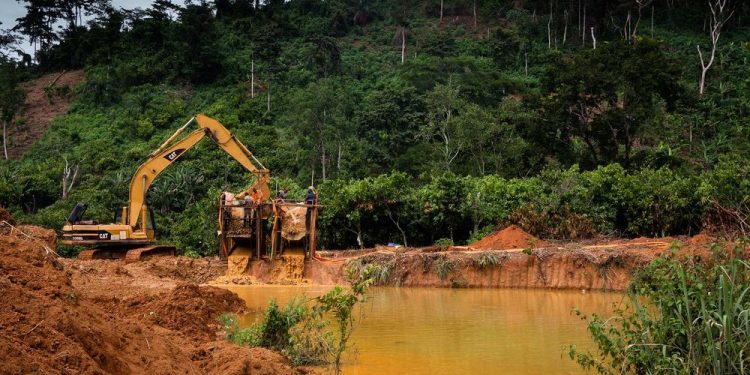Galamsey has taken a troubling turn as illegal miners have hijacked nine forestry reserves, blocking the Forestry Commission’s access to these areas. This alarming development highlights the increasing challenges posed by unregulated mining activities, which continue to threaten the environment, biodiversity, and the government’s conservation efforts.
The Situation
Illegal miners, desperate for gold and other resources, have established operations within protected forest reserves across the country, obstructing the Forestry Commission’s ability to manage these vital areas. This unprecedented move has led to the disruption of the Commission’s conservation efforts, raising fears of irreversible environmental damage, including deforestation and the destruction of wildlife habitats.
The Galamsey Crisis
The ongoing Galamsey crisis has been a persistent issue in Ghana, where illegal mining activities have flourished in the absence of effective regulation and enforcement. These miners often use harmful techniques that degrade the land, pollute water sources with toxic chemicals, and cause severe ecological damage. Despite government crackdowns and public outcry, Galamsey operations continue to expand, often with little regard for the legal and environmental consequences.
Why It Matters
- Environmental Destruction
The hijacking of these reserves by illegal miners is exacerbating the already dire environmental impact of Galamsey. Protected forests are being cleared at an alarming rate, which accelerates soil erosion, water contamination, and the loss of biodiversity. The government’s efforts to preserve these areas and maintain ecological balance are severely hindered. - Threat to Sustainable Livelihoods
The Forestry Commission’s work ensures the long-term sustainability of Ghana’s natural resources, benefiting not only the environment but also local communities dependent on these resources. When illegal miners block access to these reserves, it undermines these efforts and threatens livelihoods, especially those relying on forestry, agriculture, and eco-tourism. - Economic and Social Tension
The persistence of Galamsey operations fuels economic instability, with many communities turning to illegal mining as their primary source of income. This exacerbates poverty and encourages a cycle of environmental degradation and social unrest. As tensions rise between illegal miners and law enforcement, it becomes harder to foster sustainable economic development in these regions.
Government Response and the Way Forward
The Ghanaian government and Forestry Commission have condemned these illegal mining activities, vowing to take action to regain control of the affected reserves. However, to fully address the crisis, a more integrated approach is needed, one that tackles the root causes of illegal mining – such as poverty and lack of alternative livelihoods – while strengthening law enforcement and promoting sustainable mining practices.
The hijacking of forestry reserves by illegal miners is a stark reminder of the severe consequences of the Galamsey crisis. If swift action isn’t taken, the long-term environmental and socio-economic impacts could be devastating for Ghana’s future. It is crucial for all stakeholders, from government agencies to local communities, to collaborate and find lasting solutions to protect both the nation’s resources and its people.

